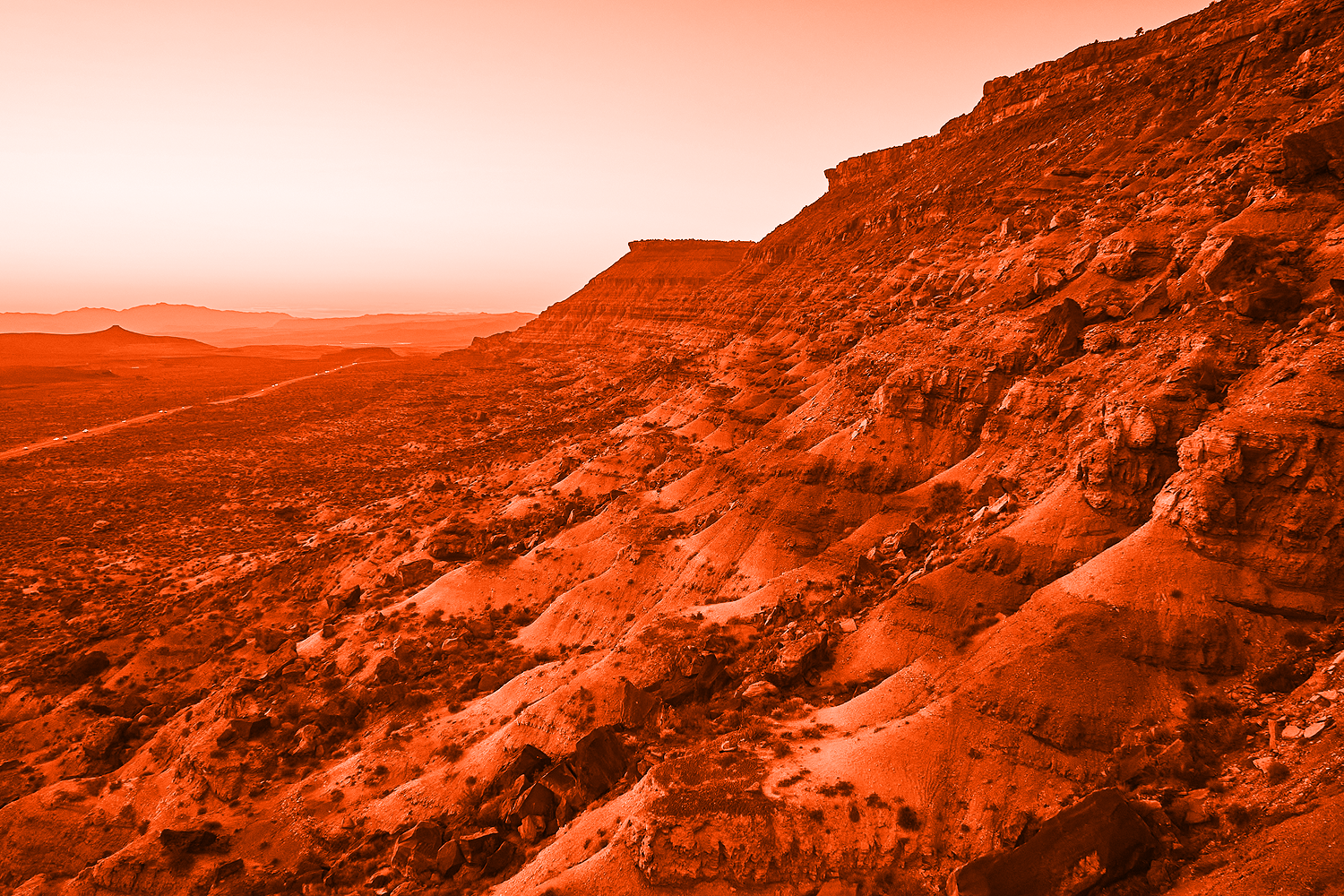
Jun. 16th, 2025
Good morning team, and welcome back to one5c! On Saturday morning, my wife and I did some light hiking through the Patricia Ann Byrom Forest Preserve, a 600-acre spot that borders Shenandoah National Park. Nature is soul-nourishing, and I’m deeply grateful to live in a place with access to public lands and the many activities they make possible.
I’m sure you are, too. That’s why we should all be paying close attention to a proposal Senator Mike Lee recently added to the Trump administration’s One Big Beautiful Bill Act. If passed, it could open the door to the sell off of up to three million acres of the public lands. In this morning’s edition, Audrey Chan breaks down the proposal, explores its wide-reaching consequences, and outlines clear steps we can all take to protect the public lands we all love. Give it a read, and do what you can to help. Oh, and send us a note about the public lands that mean something to you. —Matt
WHAT WE’RE INTO THIS WEEK
By Sara Kiley Watson and Matt Berical

Accountability check
California moves to protect vehicle emissions standards
On Thursday June 12, President Donald Trump signed a measure to block California from enforcing a first-in-the-nation ban on new gasoline-powered vehicles by 2035. The move was met almost immediately by a complaint from California Attorney General Rob Bonta and 10 other states that follow California’s emissions rules. For more than 50 years, the Golden State has requested waivers from the EPA to set stricter tailpipe emissions regulations than the rest of the country due to the state’s historically high air pollution and smog, and the ban on gas-powered cars is no different: The Biden administration granted California three such waivers to get the job done. The complaint charges that the federal government unlawfully used the Congressional Review Act (CRA)—a tool that allows Congress to overturn rules issued by federal agencies—to block the ban. According to the complaint, waivers aren’t subject to the CRA because they aren’t considered proper rules. This complaint isn’t the only tactic on the table; Senator Alex Padilla said he would place a blanket hold on EPA nominations “until Republicans allow California to protect the health of its residents,” and Governor Gavin Newsom has directed the air board to develop new mandates.
Good read
Behind the scenes at a zero-waste restaurant
You won’t find a single trash can at Baldío, Mexico City’s first-ever zero-waste restaurant. Recently awarded a Michelin Green Star—an honor recognizing restaurants around the world that demonstrate an unwavering commitment to environmental responsibility—the eatery only sources local ingredients grown using regenerative agriculture and the ancient chinampa system, a floating garden technique developed by the Aztecs and still practiced by Indigenous farmers in nearby Xochimilco. As reported in The Guardian, Baldío was founded by brothers Lucio and Pablo Usobiaga in collaboration with chef Doug McMaster, who started London’s acclaimed zero-waste restaurant Silo. Both Baldío’s food and spirits programs rely on advanced fermentation and other food preservation techniques to eliminate waste, transforming everything from rinds and peels to fish offal into star menu components.
Weather report
Trump administration to ‘phase out’ FEMA
Experts have estimated that the 2025 Atlantic hurricane season, which started this month, is likely to be above normal due to warmer-than-average ocean temperatures, among other factors. It’s also the last hurricane season that will have disaster relief support from the Federal Emergency Management Agency (FEMA). President Trump said last week that he plans to phase out the agency at the end of the season, instead shifting responsibility to states. “This is a complete misunderstanding of the role of the federal government in emergency management and disaster response and recovery, and it’s an abdication of that role when a state is overwhelmed,” a FEMA leader told CNN. So far, around a quarter of full-time staff members have left since the beginning of the Trump administration, including the top official at FEMA’s National Response Coordination Center, who departed Wednesday.
Cause for optimism
The EU is here to fill a U.S.-sized hole in climate action
Europe is stepping up to fill the void in climate regulation leadership as the Trump administration continues to bulldoze environmental legislation. As reported in Bloomberg, the European Union’s climate policies are convincing companies to shift business practices for the better. One recent example: The EU plans to do away with customs exceptions for low-value imports, a move that would help eliminate the invasion of cheaply made online goods. The regulatory framework has already forced Shein, fast fashion’s biggest polluter, to adapt its operations, including a promise to launch a €200 million “circularity fund” to support businesses developing textile recycling technologies. Despite some opposition on green policies, the EU, per Bloomberg, “is pushing ahead with green rules—and anyone wanting to do business with Europe is finding they need to align with this goal.”
Product Review
The best all-purpose cleaner is a tablet
Our favorite cleaner ditches single-use plastic—and all the water weight. Read the full review.

EYEBROW
Headline
By some really smart folks

Tucked inside the Trump Administration’s 1,116-page One Big Beautiful Bill Act is a proposal that could drastically change public lands in America. Introduced last week by Senator Mike Lee, R-Utah, it could lead to the sale of as much as 3 million acres of the public lands currently owned by the Bureau of Land Management (BLM) and the U.S. Forest Service. The measure would require federal agencies to sell a small percentage of the hundreds of millions of acres they manage, potentially raising as much as $10 billion over nine years.
Lee’s proposal echoes a similar attempt in the House this spring to sell off 500,000 acres of public lands in Utah and Nevada––a plan that was ultimately blocked after public outcry and rare bipartisan pushback. More than 100 environmental groups have already signed a letter urging the Senate to reject the plan, worried that members of Congress, the fossil fuel industry, and private developers are using the budget process as a cover-up to liquidate federal lands and pay for tax cuts benefiting only the ultra-wealthy.
Here is what those on the front lines are saying about this proposal—and how we can take action to protect public lands.
The housing shortage smokescreen
Beyond facilitating Trump’s tax cuts, Lee argues that selling off federal land would ease housing shortages in the West. But the number of homes that could be safely built on sold-off public lands is small, especially given wildfire risk and infrastructure challenges, according to Michelle Lute, Executive Director of Wildlife For All. “Land isn’t the bottleneck—shortages in construction labor, water, infrastructure, and financing, especially in rural areas, are the real barriers,” she says. “Housing is complicated, and selling off public lands won’t fix it.”
There’s also nothing in the bill text that would guarantee the consideration of affordability when selling public lands for housing, adds Grand Canyon Trust’s Cultural Landscapes Director, Tim D. Peterson. “This could be a classic bait and switch,” he says. “Though the proposed bill would give priority consideration to sell public lands near communities and infrastructure, there’s no actual requirement to do so, opening a huge loophole that would lead to trophy homes in natural areas for the same billionaires that would stand to benefit most from an extension of President Trump’s tax cuts that the sales would fund.”
When it comes to affordable housing, Lute argues that real solutions lie in building within existing communities where water, roads, and services already exist, not sprawling into wildlands that support biodiversity. “Western gateway communities depend on public lands for their economies—whether it’s recreation or guiding,” Lute adds. “Selling these lands undercuts local livelihoods and won’t solve the housing crisis.”
The looming threat to biodiversity
If the One Big Beautiful Bill Act goes through, Americans will lose access to millions of public acres: sites of recreational activities like camping, hunting, fishing, birdwatching, hiking, and exploring. They’ll also lose our last, best chance to address the climate crisis, ensure the future of wildlife and give our communities places to go in an increasingly hot, dry, and chaotic climate, says Michael Carroll, The Wilderness Society’s BLM Campaigns Director
With more environmental degradation and pollution from development and smaller agency staff comes an increased risk of wildfire, she says, as well as more habitat fragmentation, which means the division of a large swath of habitat into smaller chunks.
“This could sever habitat connectivity and isolate wildlife populations to smaller and smaller areas,” he warns. “Opening these lands to more development through selling them off will only increase the carbon that is created by these lands and pave over their ability to serve as a carbon sink.”
When public land sales open up, it’s often the worst environmental culprits that come out of the woodwork to scoop them up.
“Too often, land sales invite extractive industries like oil and gas exploration or mining. Even lands used for livestock production are frequently subdivided when property values rise or are leased to even more extractive industries once they’re degraded by grazing,” Lute says. “These transitions degrade habitat, displace wildlife, and erase already dwindling public access.”
What you can do
The Senate could soon vote on the One Big Beautiful Bill Act, which means the time to act is now. “
We know from studies that once the government signals deregulation of shared resources or little desire to enforce the law, it emboldens illegal activity that threatens wildlife and wildlands,” says Lute.
Here are a few ways to fight back.
- Call or write your senator and tell them not to support the One Big Beautiful Bill Act.
- Get involved with local conservation organizations and help organize people to stand up and defend the idea of shared public land and public access.
- Contact your local elected officials to speak out in support of public lands and the benefits they bring to your communities.
- Write letters to the editor of your local paper and post your opposition on social media.
- Use public lands. Get to know these places and the people who depend upon them, and share your stories widely.
MIC-DROP CLIMATE STAT
78%
The amount of sun’s warmth in your home that can be blocked with peel-and-stick solar film. Want more tips to keep cool this summer? We’ve got you covered here.
Copyright © 2025 one5c. All rights reserved.
Logo design by Claudia De Almeida
Questions? Feedback? Contact the editors at one5c@one5c.com.
Our mailing address is:
3112 Windsor Rd, Ste A-391, Austin, TX 78703
